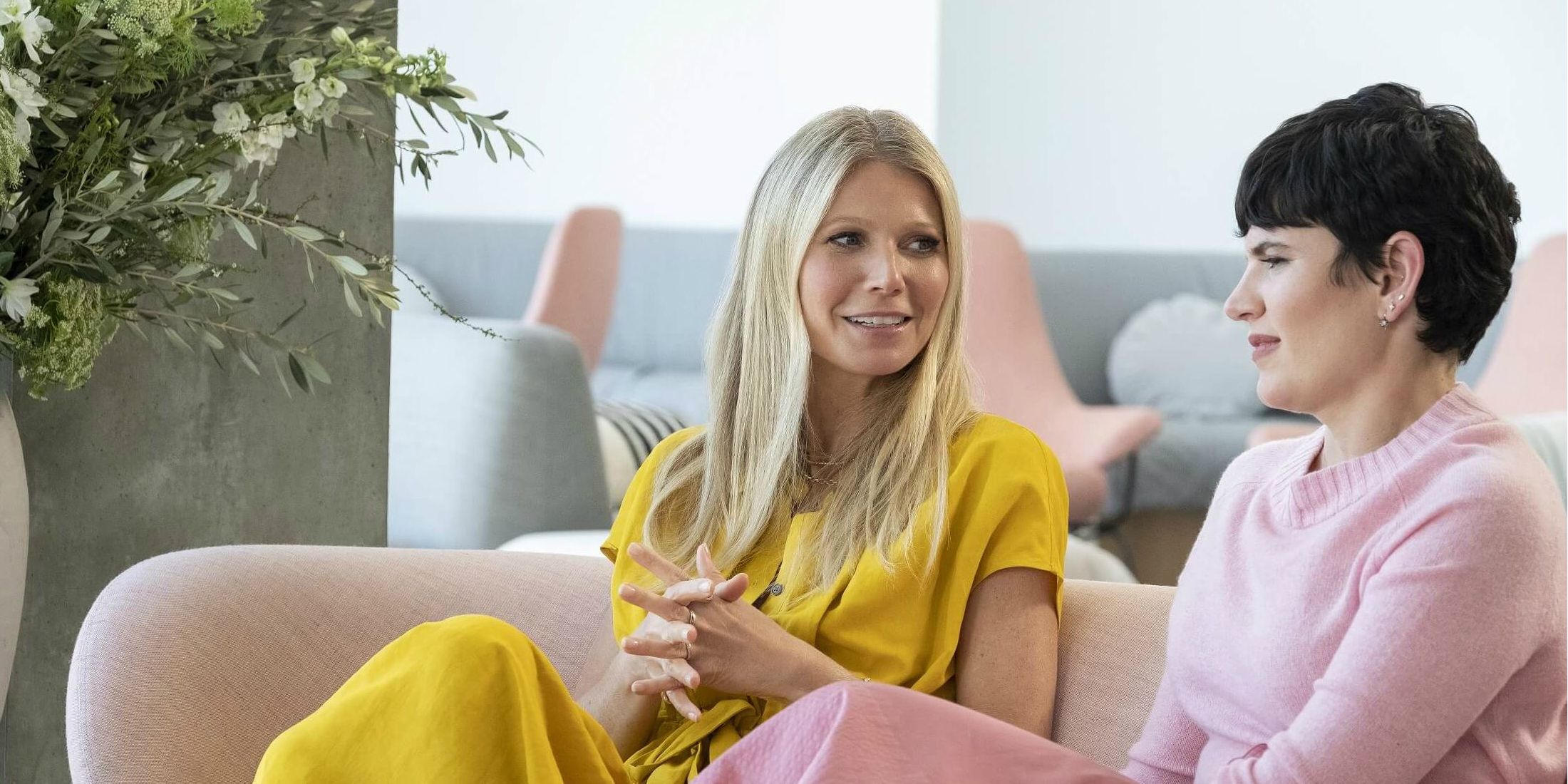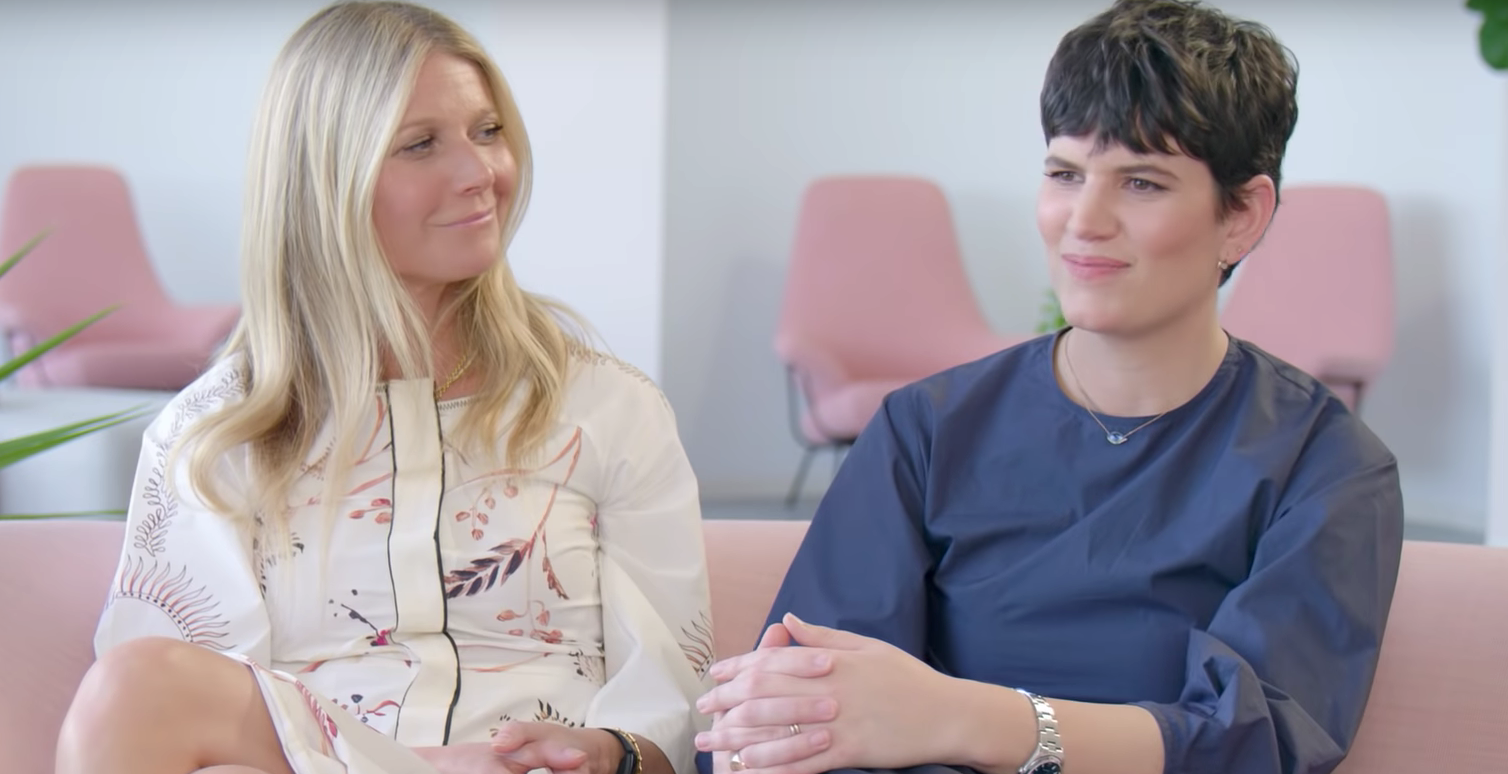Netflix and Gwyneth Paltrow’s The Goop Lab is a shameless display of pseudoscience and snake oil, but there is one thing it gets so very right. In recent years, Gwyneth Paltrow has become better known to the public not for her Oscar-winning acting or presence in the Marvel Cinematic Universe, but for her status as celebrity wellness guru with her company Goop.
Paltrow's brand, which started as a newsletter and now includes its own line of products and a magazine, has expanded into the world of television thanks to Netflix. The first season of The Goop Lab, which comprises six episodes, dropped this week to the expected furore thanks to Paltrow’s frequent endorsing and amplification of questionable pseudoscience and outright quackery.
The series is sadly no different, operating mostly as an extended commercial for the Goop company while allowing deeply suspect assertions to go unchecked. There is, however, one episode where it does something genuinely interesting that proves not only informative to audiences but potentially deeply necessary.
The One Thing Goop Gets Right
Episode 3, "The Pleasure is Ours," introduces sex educator Betty Dodson, who has been teaching sex-positivity to women for over 50 years. Dodson’s work focuses heavily on encouraging women to explore their own bodies and desires, particularly through masturbation. The Goop Lab shows her aiding a woman in reaching climax through masturbation, as well as instructing several of Goop's employees on the best ways to achieve orgasm (she's a big fan of the Hitachi Magic Wand).
This in and of itself is pretty bold stuff for Netflix to give an entire episode of television over to. Frank discussions of masturbation, technique, and the best sex toys to use for such occasions are rare on the big and small screen, especially in ways that take the subject seriously without reducing it to a cheap joke. This is a topic that The Goop Lab and Dodson want people to invest in.
The most radical part of the episode comes when the camera directly shows a vulva and explains what each part of the genitalia does. As noted earlier, a number of women were polled about the appearance of their vulva, and a shockingly large number of those asked had no idea what it looked like, nor could they detail the difference between it and the vagina. For The Goop Lab to directly take on the difficult task of destigmatizing sexual wellness by showing a part of the body that is almost never seen on-screen outside of porn is nothing short of radical. Any movie that would even attempt to show a vulva for any length of time would undoubtedly be slapped with an NC-17 rating, a fate that does not instantly befall any film that shows a penis. Not only that, but they show multiple vulvas in close-up to remind people everywhere that there is no such thing as “the perfect vulva” or a specific way it’s supposed to look. For some viewers, this may be the first time they ever see and understand this.
The Goop Lab Still Can't Help But Get Something Wrong
Vaginal care and conversations have always made up a big part of the Goop brand, to the point where the poster for this series shows Paltrow standing in front of a Georgia O’Keeffe style pink vaginal backdrop. Mostly, this has taken the form of deeply unwise advice, most infamously their celebration of vaginal steaming and jade eggs for pelvic floor muscle exercises. This specter looms over the third episode of The Goop Lab, making so much of the good advice feel tainted in hindsight.
It doesn’t help that Paltrow herself seems determined to act as the naïve audience avatar, claiming she had no idea the vulva and vagina are separate things or that vaginoplasty is a surgery that exists. Given how many years Goop has spent conversing, discussing, and acting as the almighty expert of vaginas, these moments will either ring deeply hollow to the viewer, or remind them of how Paltrow’s advice is frequently disconnected from medicine or reality.
If the entire show was dedicated to the exploration of sexual health and wellness, with Paltrow acting as a kindly guide or spectating executive producer with minimal involvement, The Goop Lab would be not only worth watching, but something of genuine value to its audience. The vast majority of the series is instead focused on peddling nonsense and often harmful ideas under the guise of informing its audience and encouraging them to explore alternatives beyond traditional medicine. For the most part, this is quackery, but the sexual health episode sees it making a genuinely strong case in that regard.
Gynecology is a field of medicine with a deeply misogynistic and racist past (via History), one built on the exploitation and pain of women with a frequent disregard for their emotional and personal trauma. Add to that the smothering restraints of patriarchy and how shame over sexual pleasure is remains rooted into our society and it’s no wonder so many women are deeply uneducated about their own bodies. The Goop Lab, in half an hour, makes a beautiful case for destroying those damaging taboos and encouraging women to prioritize their sexual wellness. It’s a true wonder to behold, but once the episode is done and the next one begins with talk of detoxes and intermittent fasting, audiences are once again reminded of how Paltrow’s brand is more likely to harm than help its viewers. The final episode out of the batch of six “explores” the idea of psychic mediums, an idea so ludicrous and fantastical that you can’t help but wonder if episode 3 was merely a fluke.
Whatever the case, those interested in watching The Goop Lab, even for so-bad-it’s-good reasons, or for the mocking voyeurism that helped to make Goop so profitable in the first place, should check out episode 3 and leave it at that. Even if their intentions were merely accidentally good or still rooted in the kind of smarmy self-promotion that makes Paltrow and her company so aggravating, the Netflix series does present some good ideas regarding women's sexuality, and it is beneficial to have sex-positive messages as part of the pop culture conversation.



